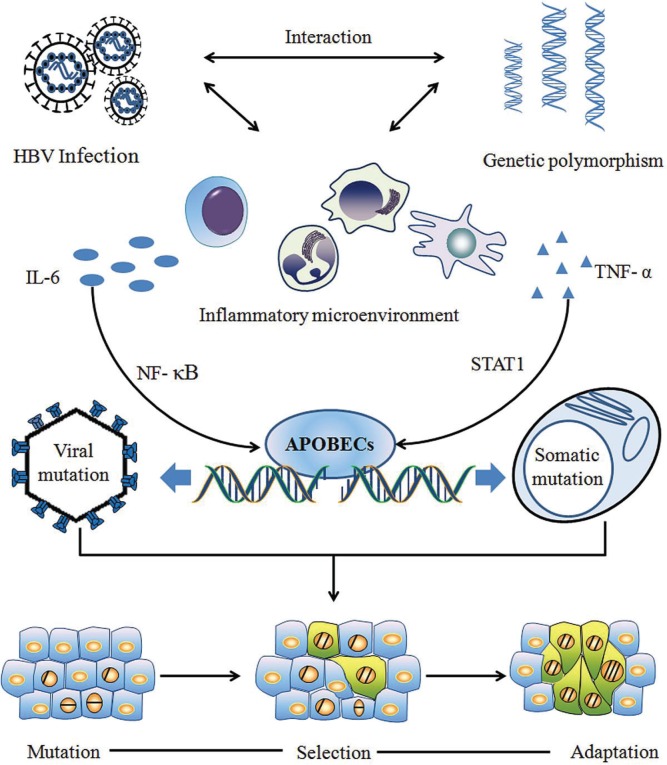FIGURE 1.
Schematic of the basic framework of Cancer Evolution–Development (Evo-Dev). Interactions between genetically predisposed inflammatory signalling molecules (such as human leucocyte antigen) and chronic infection [such as with hepatitis B virus (HBV)] contribute to the activation and persistence of chronic inflammation. Cytokines in the nuclear factor kappa B (NF-κB) or STAT1 signal pathways stimulate expression of members of the family of cytidine deaminases and their analogues called “apolipoprotein B messenger RNA editing enzyme, catalytic polypeptide-like” (APOBECs), which induce somatic and viral genomic alterations by C-to-U hypermutation. Distinct mutant lineages are selected by the inflammatory microenvironment. Mutants with characteristics of stem cells live through the survival selection and evolve into tumour-initiating cells by altering the signalling network. The process of Cancer Evo-Dev—characterized by “backward evolution” and “retro-differentiation”—is consequently triggered.

